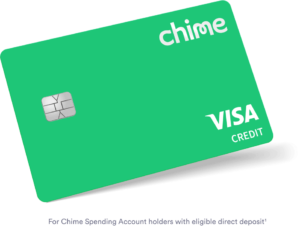Western Union is one of the world’s largest money transfer services, providing a convenient way for people to send money and receive moneydomestically and internationally. With locations in over 200 countries and territories, Western Union offers a wide range of payment methods for customers to fund their money transfers.
One common question people have is whether Western Union accepts credit cards as a form of payment. Western Union accepts major credit cards such as Visa, Mastercard, American Express and Discover for sending money domestically or internationally. Customers can use their credit cards at Western Union agent locations, online through the website or mobile app, or over the phone. However, additional fees may apply and some restrictions exist.
In this article, we will take a closer look at how to use a credit card with Western Union, the fees involved, the risks to be aware of, and alternative payment methods accepted by Western Union.

Does Western Union Accept Credit Cards?
Yes, Western Union does accept major credit cards like Visa, Mastercard, American Express and Discover as a form of payment when sending moneydomestically or internationally. Customers can use their credit cards to fund transfers in-person at Western Union agent locations, online through the Western Union website or mobile app, or over the phone.
Western Union accepts both credit and debit cards bearing the logo of one of the major card networks. However, keep in mind that some banks or credit card companies may treat Western Union purchases as cash advances, which can incur additional fees and higher interest rates. It’s a good idea to check with your card issuer first before using a credit card with Western Union.
What Are the Fees for Using a Credit Card with Western Union?
When paying for a Western Union money transfer with a credit card, there are a few different fees to be aware of:
- Transfer fee – Western Union charges a fee based on the amount sent and destination country. This fee may be higher when paying by credit card.
- Foreign exchange fee – Sending money internationally incurs this fee for converting between currencies. It is typically 3-5% of the transfer amount.
- Credit card processing fee – Western Union charges an additional processing fee for credit card transactions, around 4-6% of the sent amount.
- Cash advance fee – Some credit card companies treat Western Union purchases as cash advances, adding on interest charges and fees.
- Overdraft fees – Customers should ensure their credit card has sufficient funds to cover the transfer amount and fees.
So in total, expect to pay 10% or more in combined Western Union and credit card fees when sending money internationally by credit card. The exact fees depend on the transfer amount, destination, and credit card used.
How to Use a Credit Card with Western Union
Customers can pay for Western Union transfers with a credit card in three ways – online, in-person, or via mobile app:
1. Sending Money Online with a Credit Card
To send money online using a credit card:
- Visit the Western Union website or app and enter the transfer details like recipient name and country.
- Select “Credit Card” as the payment method during checkout.
- Provide your card details and complete two-factor authentication if prompted.
- Review the total charges including fees and confirm to proceed.
- The recipient can then pick up the money in cash at a Western Union location.
2. Sending Money In-Person with a Credit Card
To pay with a credit card at a Western Union agent location:
- Visit a Western Union location and complete a paper send form.
- Provide sender and receiver details along with the transfer amount to the agent.
- When asked for payment, present your credit card. The agent may ask to authorize the card for the transaction.
- Review the fees and exchange rate, then sign to confirm and complete the transfer.
- The agent will provide a confirmation receipt with the transfer details.
3. Sending Money via Mobile App with a Credit Card
Using the Western Union app:
- Open the app, create a profile and log in.
- Enter the transfer details and recipient information.
- Select “Debit/Credit Card” as the payment method.
- Submit the details and enter your card number when prompted.
- Review and confirm the fees, exchange rate and amount.
- Complete two-factor authentication if required.
- Get confirmation when the transfer is complete.
What Are the Risks of Using a Credit Card with Western Union?
There are some potential downsides to paying for Western Union transfers with a credit card:
- Higher fees – Credit card processing and cash advance fees can significantly increase the cost.
- Interest charges – Cash advance fees mean paying credit card interest on the funds transferred.
- Overspending – It may be tempting to send more money than you can afford.
- Fraud – Credit cards carry risks of fraudulent use and identity theft.
- Credit damage – Maxing out cards with cash advances can lower your credit score.
- Debt – Relying on credit card transfers can lead to accumulating credit card debt.
To mitigate these risks, only use a credit card with Western Union if you can comfortably afford the transfer and associated fees. Avoid cash advances and pay off the balance in full each month.
What Other Payment Methods Does Western Union Accept?
Beyond credit cards, Western Union provides several options to fund money transfers:
1. Debit Cards
Like credit cards, Western Union accepts Visa, Mastercard, and other major debit card networks. Debit cards deduct funds directly from your bank account and don’t charge interest or credit fees.
2. Bank Transfers
Link an eligible bank account with Western Union to fund transfers from your account balance. This avoids credit card fees but may take 1-2 business days to process.
3. Cash
Paying cash at a Western Union location is a popular option. It’s fast and convenient without involving credit or debit cards. However, transfers are limited to available agent cash on hand.
4. Prepaid Cards
Western Union allows using eligible prepaid debit cards to pay for transfers. Just swipe your prepaid card instead of a credit card.
Are There Any Restrictions on Using Credit Cards with Western Union?
Western Union does impose some restrictions when sending money with a credit card:
- Daily limits – Transfers may be capped at $1,999 per day when paying by credit card.
- Monthly limits – Maximum monthly credit card transfer amounts can apply, such as $7,500.
- Country restrictions – Sending funds to certain countries may be prohibited by credit card.
- Accepted cards – Only Visa, Mastercard, American Express and Discover cards are permitted.
- Identification required – Senders must provide valid government-issued ID when using credit cards.
- Large amounts – Transfers over $3,000 typically cannot be paid by credit card.
So it’s important to verify if any limitations apply based on where you are sending money and the amount being transferred.
Can You Receive Money on Your Credit Card through Western Union?
Unfortunately, Western Union does not currently offer credit card payouts for money transfers. Recipients can only receive funds in cash for pickup at Western Union locations, through direct deposit to a bank account, or to a mobile wallet.
While credit cards are accepted as a form of payment when sending money, they cannot be used to receive remittances through Western Union’s network. The recipient would need to select a different payout method.
In summary, Western Union does provide the option to conveniently pay for money transfers using major credit cards, both online and in-person. However, customers should be mindful of the higher fees involved compared to other payment methods. Considering the risks and any applicable limits before using a credit card with Western Union can help ensure it aligns with your financial situation and needs.






